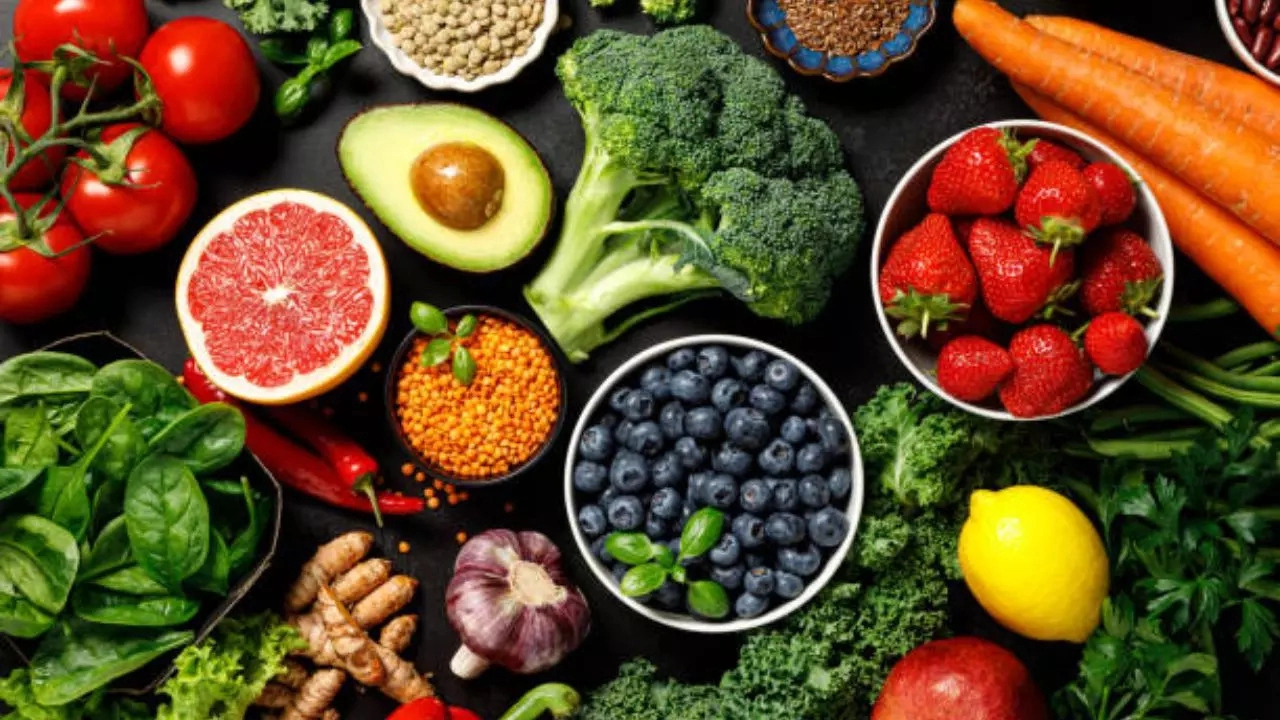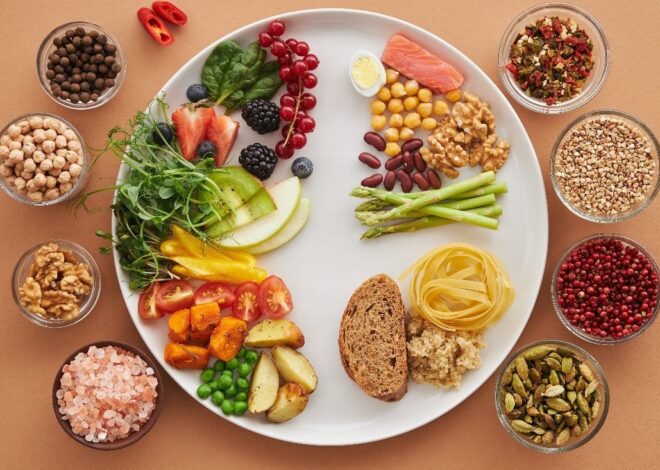
Superfoods You Should Include in Your Diet
In recent years, the term “superfood” has become a popular buzzword in the world of nutrition. These are foods packed with nutrients, antioxidants, and compounds that offer significant health benefits. Adding superfoods to your diet can help boost energy levels, improve overall health, and even reduce the risk of chronic diseases. Here’s a guide to some of the top superfoods you should include in your daily diet to keep you feeling your best.
1. Blueberries: The Antioxidant Powerhouse
Blueberries are often called the “king of antioxidants.” They are low in calories but incredibly high in nutrients. These little berries are rich in vitamins C and K, fiber, and powerful antioxidants like anthocyanins that protect cells from damage caused by free radicals.
Health Benefits:
- Supports heart health by lowering blood pressure and bad cholesterol.
- Improves brain function and memory.
- Helps fight inflammation and oxidative stress.
How to Use:
- Add a handful of blueberries to your morning smoothie, yogurt, or oatmeal.
- Snack on them fresh or use them as a topping for salads.
2. Kale: The Nutrient-Dense Green
Kale is one of the most nutrient-dense foods on the planet. It’s packed with vitamins A, C, and K, calcium, and fiber. This leafy green also contains antioxidants like quercetin and kaempferol, which have anti-inflammatory and heart-protective properties.
Health Benefits:
- Supports eye health due to its high levels of lutein and zeaxanthin.
- Aids in detoxification with fiber and sulfur compounds.
- Promotes healthy skin and hair.
How to Use:
- Toss kale into salads, sauté it with garlic and olive oil, or add it to smoothies.
- Bake kale chips as a healthy snack.
3. Chia Seeds: The Fiber-Rich Seed
Chia seeds are tiny but mighty! These small seeds are loaded with fiber, protein, omega-3 fatty acids, and several essential minerals like calcium, magnesium, and phosphorus. They are an excellent choice for plant-based eaters looking to boost their nutrient intake.
Health Benefits:
- Aids in digestion and promotes gut health with its high fiber content.
- Helps keep you feeling full longer, aiding in weight management.
- Supports heart health with omega-3 fatty acids.
How to Use:
- Sprinkle chia seeds on salads, yogurt, or oatmeal.
- Mix them into smoothies or create chia pudding by soaking them in milk or a milk alternative overnight.
4. Salmon: The Omega-3 Rich Fish
Salmon is a top source of high-quality protein and is rich in omega-3 fatty acids, which are known for their heart health benefits. It also contains a good amount of B vitamins, potassium, and selenium.
Health Benefits:
- Promotes heart health by reducing inflammation and lowering blood pressure.
- Boosts brain health and cognitive function.
- Provides a source of lean protein for muscle maintenance.
How to Use:
- Grill, bake, or pan-sear salmon with herbs and a squeeze of lemon.
- Add it to salads, wraps, or serve it alongside roasted vegetables.
5. Turmeric: The Golden Spice
Turmeric has been used for centuries in traditional medicine due to its powerful anti-inflammatory and antioxidant properties. Its main active ingredient, curcumin, has been extensively studied for its potential health benefits.
Health Benefits:
- Reduces inflammation, which may help alleviate symptoms of arthritis.
- May lower the risk of heart disease and improve overall cardiovascular health.
- Supports brain health and may reduce the risk of neurodegenerative diseases.
How to Use:
- Add turmeric to curries, soups, or smoothies.
- Try a golden latte by mixing turmeric with warm milk and a dash of honey.
6. Quinoa: The Protein-Packed Grain
Quinoa is a gluten-free whole grain that’s a complete protein, meaning it contains all nine essential amino acids. It’s also high in fiber, magnesium, iron, and B vitamins, making it a great alternative to traditional grains.
Health Benefits:
- Supports muscle growth and repair with high-quality protein.
- Helps manage blood sugar levels due to its low glycemic index.
- Promotes gut health with its fiber content.
How to Use:
- Use quinoa as a base for salads, bowls, or as a side dish.
- Cook it in vegetable broth for added flavor or mix it into soups.
7. Avocado: The Healthy Fat
Avocados are a fantastic source of heart-healthy monounsaturated fats. They’re also loaded with fiber, potassium, vitamin E, and B vitamins. The healthy fats in avocados make them a satisfying and versatile addition to any meal.
Health Benefits:
- Supports heart health by lowering bad cholesterol and increasing good cholesterol.
- Enhances nutrient absorption, especially fat-soluble vitamins like A, D, E, and K.
- Promotes healthy skin and hair with vitamin E and healthy fats.
How to Use:
- Add sliced avocado to sandwiches, salads, or toast.
- Use it as a creamy base for smoothies or make guacamole for a healthy dip.
8. Almonds: The Crunchy Snack
Almonds are rich in healthy fats, fiber, protein, magnesium, and vitamin E. These nuts are an easy snack to grab on the go and are known for their heart-healthy properties.
Health Benefits:
- Reduces hunger, aiding in weight management.
- Supports heart health by improving cholesterol levels.
- Provides antioxidant protection with vitamin E.
How to Use:
- Snack on a handful of raw almonds.
- Add chopped almonds to salads, yogurt, or baked goods.
9. Sweet Potatoes: The Nutrient-Rich Carb
Sweet potatoes are a fantastic source of fiber, vitamins A and C, potassium, and antioxidants like beta-carotene. They’re a nutrient-rich carbohydrate that provides sustained energy.
Health Benefits:
- Supports eye health with beta-carotene, which converts to vitamin A.
- Boosts the immune system with its high vitamin C content.
- Aids digestion with fiber.
How to Use:
- Roast sweet potatoes with a drizzle of olive oil and spices.
- Use them as a base for a nutrient-packed bowl or mash them as a side dish.
10. Green Tea: The Calming Beverage
Green tea is one of the healthiest beverages you can drink. It’s loaded with antioxidants, including polyphenols and catechins, which are known for their health benefits. This soothing drink also contains a modest amount of caffeine, offering a gentle energy boost.
Health Benefits:
- Enhances brain function and promotes mental clarity.
- Supports weight loss by boosting metabolism.
- Reduces the risk of chronic diseases, including heart disease.
How to Use:
- Enjoy a cup of hot green tea in the morning or afternoon.
- Use brewed green tea as a base for smoothies or iced teas.
Conclusion
Incorporating superfoods into your diet doesn’t have to be complicated. Start by gradually adding one or two superfoods to your daily meals and discover what you enjoy the most. These nutrient-rich foods can make a significant difference in your overall health and well-being, providing your body with the essential vitamins, minerals, and antioxidants it needs to thrive. By making conscious choices and embracing a variety of superfoods, you’re taking a vital step towards a healthier lifestyle.



